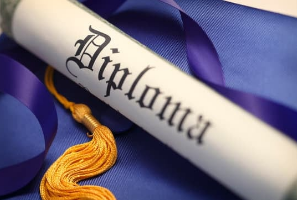By Farah Salsabila, Journalist of MINA
In many parts of the world, certificates are more than just documents, they are keys to jobs, social recognition, and a sense of achievement. But what happens when those documents no longer reflect the truth they’re supposed to carry? Behind the glossy paper and official stamps lies a long history that began with noble intentions but has, over time, been tarnished by unethical practices from irresponsible individuals and institutions. From medieval universities to today’s online learning platforms, certificates have evolved in form and function. Yet one question remains: do certificates always represent real learning?
A Brief History of Educational Certificates
The use of certificates in education goes back centuries. In the Islamic world during the medieval period, scholars received an ijazah, a license to teach or transmit specific texts granted by a qualified teacher. This certificate ensured that knowledge could be traced through a clear chain of transmission, known as sanad. Meanwhile, in medieval Europe, universities such as Bologna and Oxford began issuing degrees to indicate mastery in certain fields. At their core, certificates were meant to be proof of a student’s dedication, training, and understanding under the guidance of trusted scholars.
Also Read: The Forty-Four-Days of Glory: Azerbaijan’s Struggle for Justice and Peace
Over time, certification became institutionalized. The Industrial Revolution and the rise of nation-states strengthened the role of formal education and with it, the importance of certification. Governments, employers, and academic institutions increasingly relied on certificates as evidence of competence, laying the foundation for the modern education system we know today.
The Role and Value of Certificates
In theory, educational certificates reflect a person’s hard work, knowledge, and skills. They serve as gateways to further education, job opportunities, and professional recognition. In many countries, certificates are required to enter the workforce, continue to university, or receive a license to practice certain professions.
Certificates also help standardize education, allowing institutions and employers to assess qualifications more efficiently. Often, certificates are seen as a guarantee of a minimum level of expertise. However, as the value placed on certificates rises, so does the pressure to obtain them—sometimes at the cost of honesty.
Also Read: Palestine Solidarity Month: A Collective Movement for Al-Aqsa and Palestine’s Freedom
Controversies: Fraud and Ethical Concerns
One of the most urgent issues today is the spread of fake diplomas and so-called “diploma mills.” These institutions offer degrees with little or no academic requirements, often in exchange for money or personal gain. Such practices undermine the credibility of legitimate institutions and harm individuals who truly earned their qualifications.
Scandals involving fake certificates have emerged across the globe. From politicians to corporate executives, some individuals have been exposed for holding fraudulent degrees. This not only erodes public trust in education systems but also puts critical sectors such as healthcare, law, and engineering at serious risk.
Even within legitimate systems, unethical practices can occur. In some countries, bribery and corruption have led to the illegal issuance of certificates. Grades can be manipulated, exams can be fixed, all to gain a certificate that may not reflect true ability. It’s no surprise that diplomas are among the most commonly forged documents worldwide.
Also Read: Hassan al-Turabi: A Controversial Thinker from Sudan
Modern Trends and New Challenges
In today’s digital age, online learning platforms have introduced new forms of certification. Micro-credentials and digital badges aim to validate specific skills rather than full academic programs. While this supports more flexible and lifelong learning, it also raises questions about standardization and recognition.
Critics argue that modern society puts too much weight on certificates, as if they alone define intelligence or capability. As a result, real skills and informal learning are often overlooked. There’s growing advocacy for competency-based education, where learners are assessed based on what they can actually do, not just what’s printed on a piece of paper.
Ethical and Cultural Implications
Also Read: Who Exactly is the RSF Group Shaking Sudan?
An obsession with certificates can lead to a culture of “credentialism,” where documents are valued more than the person behind them. In highly competitive environments, students may focus more on grades and certificates than on real learning. This mindset harms both individuals and society, by overlooking genuine talent and potential.
Furthermore, in low-income areas or corrupt systems, access to legitimate certification can be limited. This pushes some people toward illegal alternatives, worsening educational inequality and reinforcing systemic injustice.
At its best, a diploma or certificate is a meaningful symbol of learning and growth. But in practice, it can also become a commodity, something that can be bought, faked, or manipulated. Moving forward, it’s crucial to uphold the integrity of certification processes and to promote a culture that values real learning over titles. Only then can a single piece of paper truly reflect knowledge, skill, and integrity. []
Mi’raj News Agency (MINA)
Also Read: The Two-State Solution (Palestine–Israel) in Historical Perspective




























 Mina Indonesia
Mina Indonesia Mina Arabic
Mina Arabic